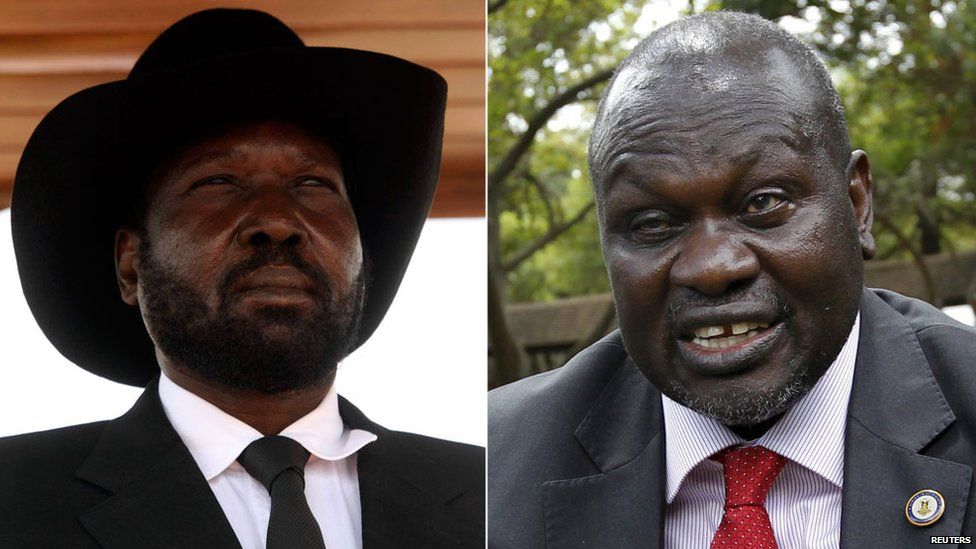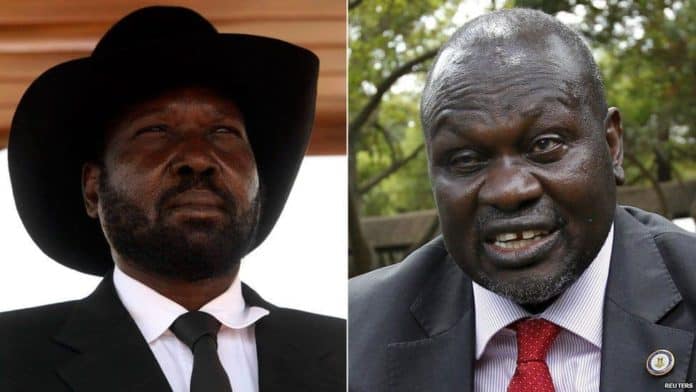-
27 August 2015
- From the section Africa

The US has warned South Sudan’s leaders not to violate the peace deal aimed at ending a brutal civil war in the world’s youngest state.
The US would “hold to account” leaders who breached the deal, and would support sanctions against them, said state department spokesman John Kirby.
The US did not recognise President Salva Kiir’s reservations about the deal, he added.
He signed the deal on Wednesday. Rebel leader Riek Machar signed it last week.
Fighting between forces loyal to the two men over the last 20 months has forced more than 2.2 million people from their homes in South Sudan, which broke away from Sudan in 2011.
The deal envisages Mr Machar returning to the government as vice-president.
His dismissal from the post in 2013 was one of the main triggers of the civil war.
Mr Kirby said the US did not “recognise any separate reservations made about the agreement”.
“To end the fighting we call on all parties to adhere to the permanent ceasefire within the next 72 hours and begin the process of implementing this agreement,” he added.
Mr Kiir listed 16 reservations when he signed the deal in front of regional leaders in South Sudan’s capital, Juba.
They included concerns over a power-sharing government, and control of the army.
Key points of peace deal:
- Fighting to stop immediately. Soldiers to be confined to barracks in 30 days, foreign forces to leave within 45 days, and child soldiers and prisoners of war freed
- All military forces to leave the capital, Juba, to be replaced by unspecified “guard forces” and Joint Integrated Police
- Rebels get post of “first vice-president”
- Transitional government of national unity to take office in 90 days and govern for 30 months
- Elections to be held 60 days before end of transitional government’s mandate
- Commission for Truth, Reconciliation and Healing to investigate human rights violations
Five obstacles to lasting peace
The US had proposed a UN arms embargo and more sanctions from 6 September unless the pact was signed by the 15-day deadline given to Mr Kiir last week.
At least seven ceasefires have previously been agreed and then shattered – sometimes within hours.
Fighting broke out in December 2013 after President Kiir accused his sacked deputy Mr Machar of plotting a coup.
Mr Machar denied the charges, but then mobilised a rebel force to fight the government.



